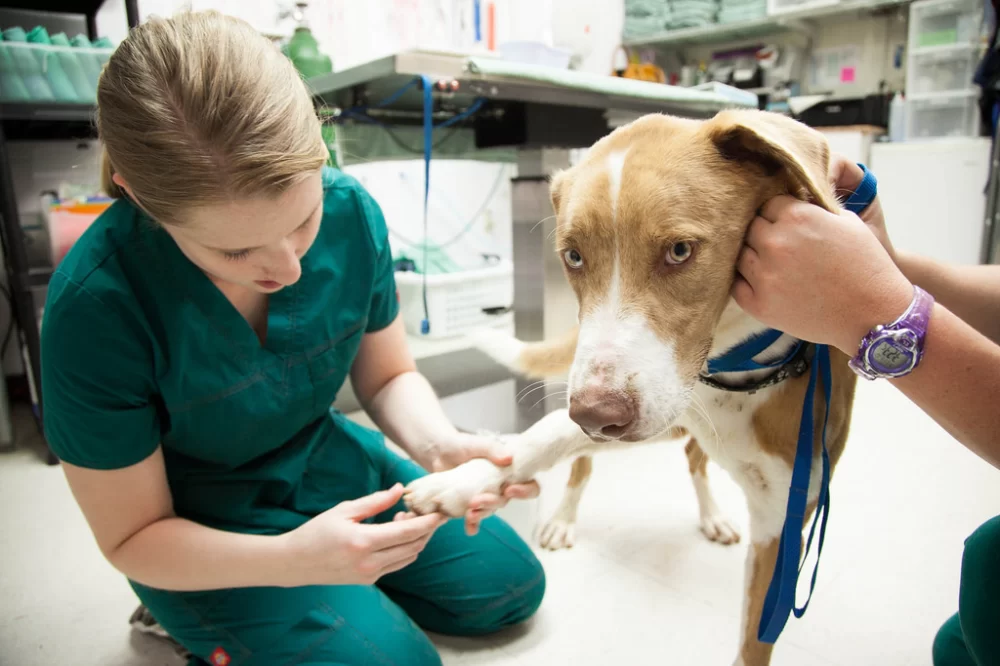What Major Would Veterinarian Be Under? Exploring the Path to a Veterinary Career
- The Path to Becoming a Veterinarian
- What Major Should You Choose to Become a Veterinarian?
- Required Education and Training for Veterinarians
- Alternative Career Pathways in Veterinary Medicine
- Real-Life Example: The Educational Journey of a Veterinarian
The Path to Becoming a Veterinarian
Becoming a veterinarian is a rewarding journey, but many prospective veterinary students often wonder, “What major would veterinarian be under?” The path to becoming a veterinarian is both exciting and challenging, requiring a deep commitment to both education and passion for animal welfare. Over the years, I’ve learned that the educational journey to becoming a veterinarian involves a series of carefully considered steps, each building upon the last, and the major you choose plays a key role in laying the foundation for a successful career in this field.
What Major Should You Choose to Become a Veterinarian?
The major you choose is an important first step on the road to becoming a veterinarian. I often hear from students unsure about what path to take. Fortunately, veterinary schools typically don’t require a specific undergraduate major as long as you meet the prerequisite coursework. However, the most common major that students pursuing veterinary careers choose is in the sciences. Here’s a closer look at some of the most popular majors that would prepare you for veterinary school:
2.1 Biology
Biology is one of the most common undergraduate majors for aspiring veterinarians. It provides a solid foundation in animal biology, genetics, physiology, and microbiology. I personally pursued a biology degree, which allowed me to gain a deep understanding of life sciences and animal health. The coursework includes subjects like animal anatomy, ecology, and biochemistry, all of which are essential for veterinary studies. Many students find that biology is a well-rounded major that keeps their options open while fulfilling the prerequisites for veterinary school.
2.2 Animal Science
Animal science is another popular choice for students planning to become veterinarians. This major is more specialized than biology and focuses specifically on the care and management of animals, including livestock and pets. In my experience, students majoring in animal science gain a deeper understanding of animal behavior, nutrition, and reproduction, all of which are important areas in veterinary practice. Animal science is ideal for students who know they want to work with animals directly, particularly in agricultural or livestock veterinary fields.
2.3 Zoology
Zoology, the study of animals and their behavior, is another excellent major for aspiring veterinarians. It offers insights into how animals interact with their environments and how species adapt to their surroundings. I know a few colleagues who majored in zoology, and it provided them with an in-depth knowledge of various animal species, which became useful when they transitioned into veterinary studies. Zoology students may study topics like animal genetics, ecology, and evolutionary biology, all of which contribute to a broader understanding of the animal kingdom.
2.4 Biochemistry
For those with a strong interest in the molecular and chemical processes that affect animal health, biochemistry may be a great choice. I’ve met many future veterinarians who majored in biochemistry, and this field gave them a solid understanding of the biochemical processes that govern cellular function in animals. Veterinary schools require a deep understanding of pharmacology and physiology, and biochemistry is a great way to dive into those subjects early in your education.
Required Education and Training for Veterinarians
After choosing a major, aspiring veterinarians must complete specific coursework to meet the prerequisites for veterinary school. These requirements generally include classes in biology, chemistry, physics, and mathematics. Additionally, veterinary schools typically expect students to have hands-on experience with animals, whether through volunteer work at animal shelters, internships, or shadowing veterinarians in clinical settings. Here’s a closer look at the steps after obtaining an undergraduate degree:
3.1 Veterinary School
Once you’ve completed your undergraduate degree, the next step is applying to veterinary school. This is where the real training begins. Veterinary school lasts about four years and leads to a Doctor of Veterinary Medicine (DVM) degree. During these years, students undergo intensive coursework in anatomy, surgery, diagnostics, and pharmacology, among other subjects. Students also gain practical experience through clinical rotations and internships. The first two years are generally focused on classroom education, while the last two years focus on hands-on experience in veterinary hospitals and clinics.
3.2 Licensing and Certification
After earning a DVM degree, veterinarians must pass a licensing exam in the state or country they wish to practice in. In the United States, this typically involves the North American Veterinary Licensing Examination (NAVLE). After passing the exam, veterinarians can practice in various settings, including private clinics, animal shelters, and zoos. Some may choose to pursue further specialization, which can involve additional training and certification in specific fields such as surgery, dermatology, or cardiology.
Alternative Career Pathways in Veterinary Medicine
While the traditional path to becoming a veterinarian involves clinical work, there are several alternative career pathways within veterinary medicine. Over time, I’ve discovered that veterinarians can branch out into many different areas, offering exciting opportunities for those with a veterinary background.
4.1 Veterinary Research
Veterinarians who enjoy research can work in laboratories or with pharmaceutical companies. Veterinary research often focuses on developing new treatments for animal diseases, improving animal welfare, and advancing veterinary medicine. Some veterinarians pursue careers in academia, teaching and conducting research at universities. This is a great option for those who are passionate about science and discovery.
4.2 Wildlife and Conservation
Veterinarians can also work with wildlife and conservation organizations, focusing on the health and preservation of endangered species. This can involve working with wildlife rehabilitation centers, national parks, or non-profits dedicated to animal conservation. I’ve known a few veterinarians who found their passion in this field, where they could combine their veterinary skills with a love for wildlife and environmental conservation.
4.3 Public Health
Another exciting pathway for veterinarians is public health, where they work on preventing zoonotic diseases (diseases that can spread from animals to humans) and improving public health safety. These veterinarians may work for governmental agencies like the Centers for Disease Control and Prevention (CDC) or the World Health Organization (WHO), playing a crucial role in controlling outbreaks and promoting animal-to-human health measures.
Real-Life Example: The Educational Journey of a Veterinarian
Let’s take a look at the educational journey of Dr. Emma, a veterinarian I’ve worked with during my internship. Emma always knew she wanted to work with animals, so she pursued a biology major in college. After completing her degree, she applied to veterinary school and was accepted into a prestigious program. During her four years at veterinary school, Emma specialized in small animal care and also gained experience working with exotic animals during clinical rotations. She passed the NAVLE exam and began working in a private practice, later transitioning into a research role where she contributes to studies on animal disease prevention.
Dr. Emma’s journey is just one example of how varied and fulfilling a veterinary career can be. Whether you choose clinical practice, research, or public health, the opportunities are endless for those who pursue a career in veterinary medicine.
If you're considering becoming a veterinarian or simply want to learn more about the educational requirements, I highly recommend exploring the many resources available at ToolNest to guide your next steps!












